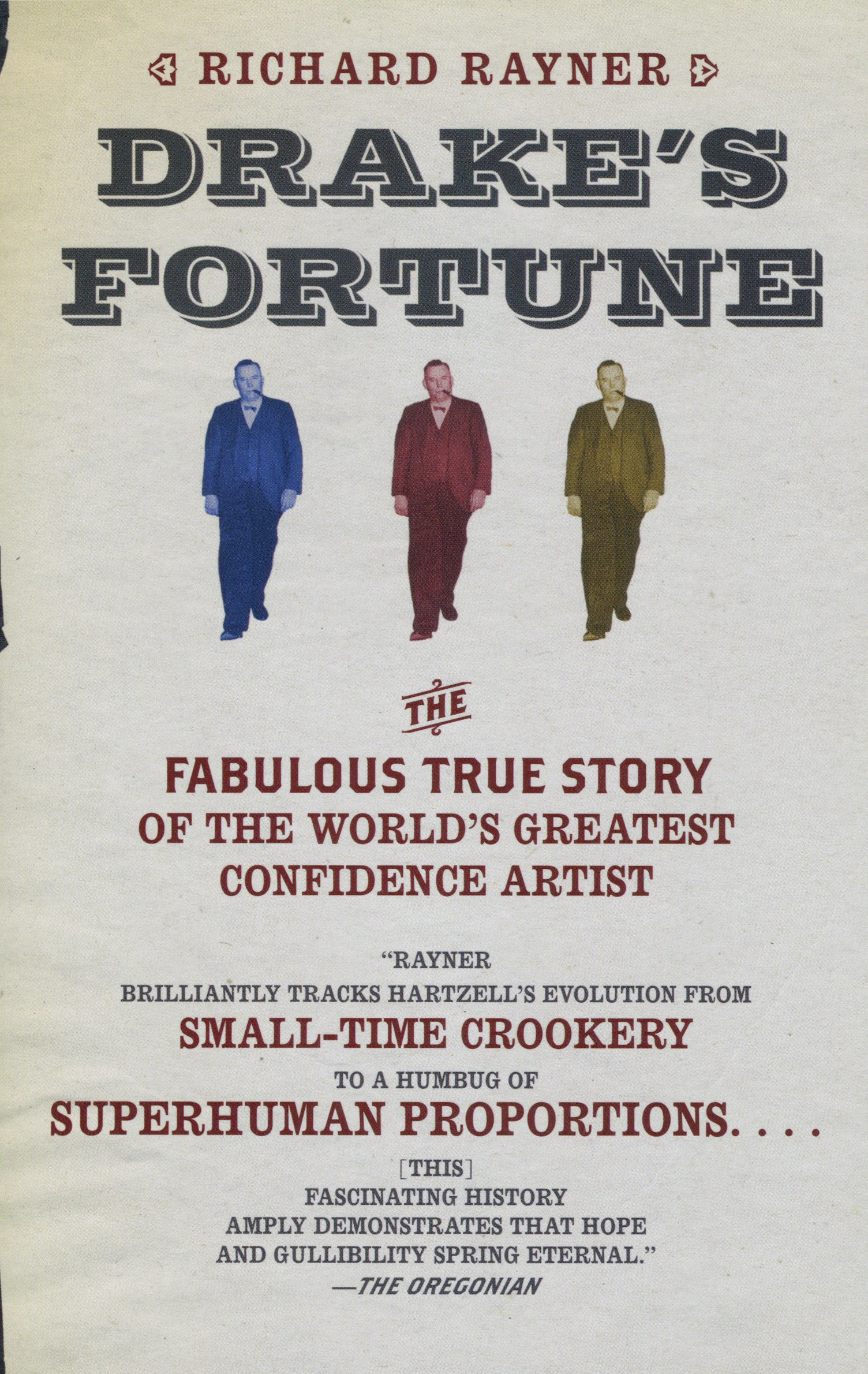
His scam was as simple as it was brazen. Before and during the Great Depression, Oscar Hartzell persuaded tens of thousands of Midwesterners to part with millions of dollars to start a legal fund that would see the mythical fortune of Sir Francis Drake restored to his rightful heir. In return for their contributions, donors would get shares in the riches, estimated to be worth $100 billion. The money of course went in the pocket of Hartzell, who transformed himself into a hedonistic English aristocrat even as the folks back home continued to see him as a hero.
As he recounts this amazing tale, Richard Rayner tells the larger history of cons in America. We have always had a soft spot for the crafty or larger-than-life swindler, and with Drake’s Fortune, Rayner offers a delightful portrait of a uniquely American character.
"The confidence man," Rayner suggests in this lively biography of rakish swindler Oscar Hartzell, "might in fact be the great covert, or not so covert, American hero." After stumbling more or less inadvertently onto a scheme involving the allegedly misappropriated fortune of Sir Francis Drake, Iowan Hartzell persuaded some 100,000 Midwesterners to part with millions of dollars mostly during the Great Depression to start a legal fund that would see the fortune restored to its rightful heir. In return for their contributions, donors would get "shares" in the fortune, estimated to be worth $100 billion. In fact, all the money went into Hartzell's pocket. He lived the high life in London for years, until Scotland Yard built enough of a case against him to have him deported back to Sioux City to stand trial for fraud. Despite his speedy conviction, the majority of those he'd fleeced remained convinced he was going to deliver their shares of Drake's fortune and they continued to send him money. Described by prison psychiatrists as of below average intelligence, Hartzell was, Rayner suggests, nevertheless canny enough to exploit American fantasies about instant wealth and glory. Rayner's (The Blue Suit) account of Hartzell's life and times is brisk and breezy, a terrifically entertaining read, and the author's obvious fascination with his subject is infectious. But this is more than just a gripping tale: Rayner also laces his narrative with savvy commentary including insights into the psyches of swindler and victim alike that helps explain why cons like Hartzell occupy such a place in American history.
From Chicago Tribune: From failed farmer to successful swindler
Rudyard Kipling, who proved in "The Man Who Would Be King" that he knew a thing or two about confidence men claiming royal connections, wrote a poem ("The Naulakha") that included these lines:
"And the end of the fight is a tombstone white/With the name of the late deceased/And the epitaph drear: 'A fool lies here/ Who tried to hustle the East.' "
There's no evidence that Kipling ever met Oscar Hartzell, but he certainly would have understood and appreciated his astonishing achievement. This former farmer and cattle rancher--labeled by several psychiatrists as having below-average intelligence--was a fool who hustled the Midwest, swindling thousands of residents of the region out of millions of dollars in the years before and during the Great Depression, using a confidence scam so old and creaky that to read its details now in Richard Rayner's beautifully balanced new book made me laugh out loud and choke up tearfully--often at the same time.
Available on Amazon.